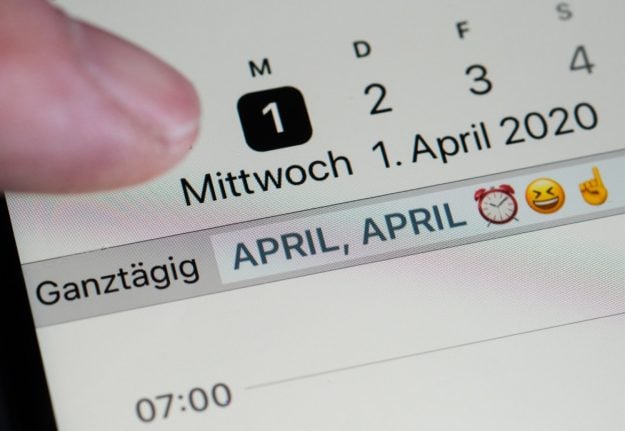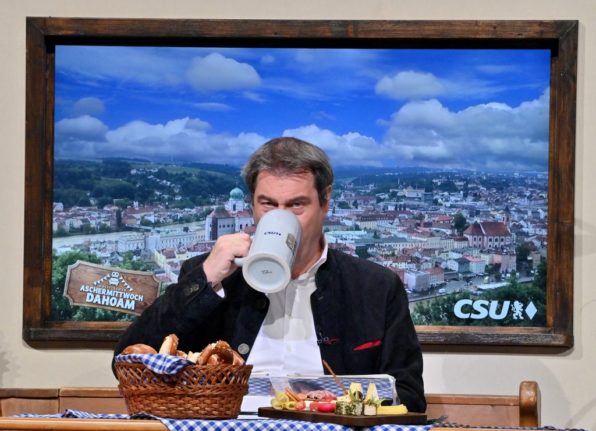What does it mean?
Today is Der erste April in Germany, which English speakers know as April Fools’ Day.
The day can also be referred to simply as Erster April, and it usually involves Der Aprilscherz, or the April prank, joke, or hoax. In Germany, as in many countries, the April Fools’ Prank is very popular to pull on friends, family, or coworkers.
How is it used?

Last year’s April Fools’ Day shenanigans involved dogs dressed as guards in Munich’s U-Bahn. Photo: DPA.
In German, fooling someone on the day is described as “sending someone into April” or “jemanden in den April schicken,” a phrase that was first recorded in Bavaria in 1618.
While the origins of April Fools’ Day are a matter of debate, the German media has long enjoyed pulling pranks on the nation.
The oldest April joke in a German newspaper was published in 1774. It was a ridiculous set of tips for breeding multicoloured hens.
April Fools in the corona crisis
Amidst the global coronavirus crisis, April Fools’ Day looks a little bit different in Germany and around the world.
In 2020, Bundesministerium für Gesundheit (Germany’s Ministry of Health) banned April Fools’ Day jokes regarding coronavirus, noting that it is important to prevent the spread of false information.
In der derzeitigen Situation bitten wir Sie darum, am 01. April diesen Jahres auf erfundene Geschichten zu der Coronavirus-Thematik zu verzichten. So kann die Gefahr minimiert werden, dass der Kampf gegen das Virus durch Falschinformationen zum Thema erschwert wird. pic.twitter.com/OEYShq6vJp
— BMG (@BMG_Bund) March 31, 2020
Others took to Twitter to comment on the absence of April pranks in light of the global pandemic.
Heute ist der 1. April. Oder wie es dieses Jahr heißt: Witz, bleib drinnen! #Aprilscherz
— ZDF heute-show (@heuteshow) April 1, 2020
This tweet reads: “Today is April 1st, or as it’s known this year, ‘Jokes, stay inside!'”
Example Sentences:
Sollen wir jemanden in den April schicken?
Should we prank someone for April Fools’?
Viele Leute haben dem Aprilscherz aus der Zeitung geglaubt.
Many people believed the April Fools’ joke from the newspaper.





 Please whitelist us to continue reading.
Please whitelist us to continue reading.
Member comments